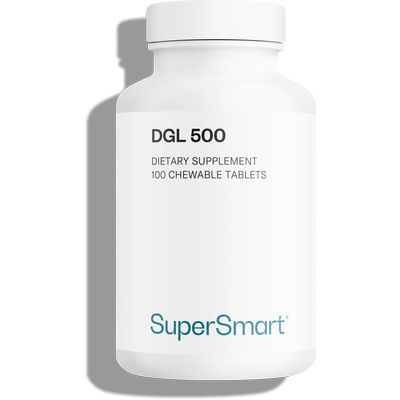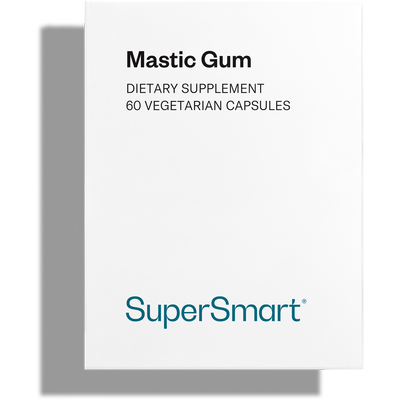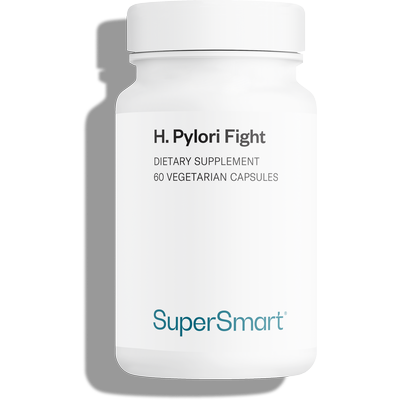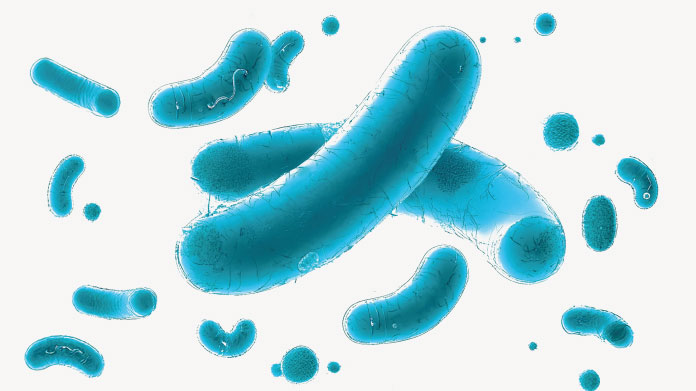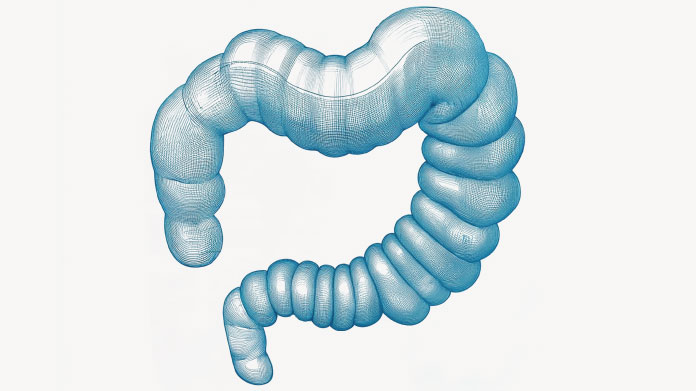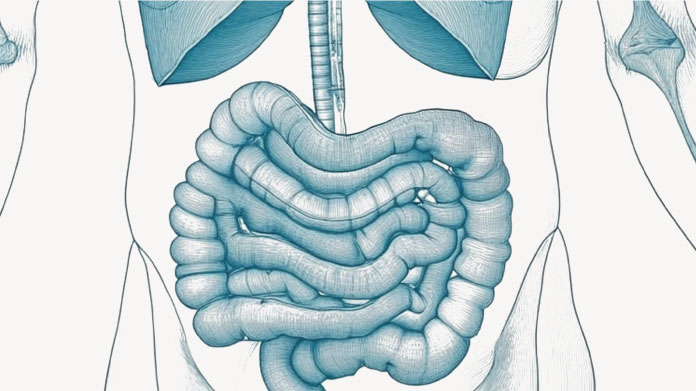Heartburn: what remedies are available?
Affecting more than half of all over-50s, heartburn is one of the most common stomach complaints. Discover our tips on how to quell the fire of acid indigestion.
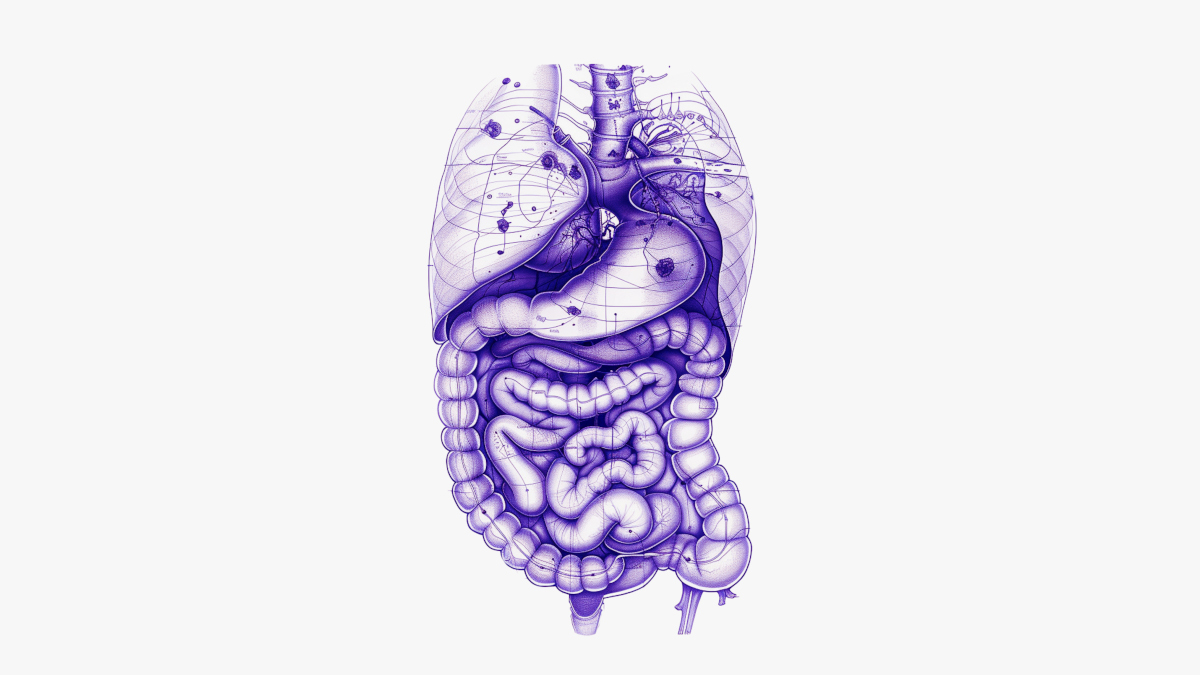
Heartburn: symptoms
Heartburn, or pyrosis, is a a painful sensation in the epigastric region (the pit of the stomach) which can extend behind the sternum and up into the throat. It usually occurs after a meal and is more pronounced when leaning forward, lying down or engaging in exercise.
Heartburn is very often associated with acid reflux which is the main symptom of gastro-esophageal reflux disease (GERD), the chronic condition in which stomach contents travel back up the esophagus (1).
Heartburn: causes
While the occasional episode of heartburn, following a heavy meal for example, is not a cause for concern, it is a problem when it becomes a daily occurrence.
Weakness of the lower esophageal sphincter
The stomach is equipped with anti-reflux mechanisms designed to prevent regurgitation towards the esophagus. The lower esophageal sphincter (LES), a kind of valve located at the junction of the esophagus and cardia (entrance to the stomach), is the main such mechanism. When it fails to close completely, gastric juices leak out which attack and damage the esophageal walls (2).
This over-relaxation of the LES is precipitated by factors that weaken the tone of the sphincter or cause the stomach to become distended: excessively large meals, insufficient chewing, drinking too many fizzy drinks (3-4)…
Heartburn and pregnancy
Pregnancy exerts upward pressure in the abdomen which often causes LES dysfunction (5). For the same reason, being overweight, wearing clothes that are too tight around the waist, or excessive fermentation in the gut all exacerbate acid reflux (6-7).
Hiatal hernia
A hiatal hernia occurs when the upper part of the stomach bulges outside of the abdomen into the chest cavity. In what are referred to as ‘sliding hernias’, the LES can become lax due to the jerky movements of the diaphragm during respiration.
Heartburn and stress
Whether physical or psychological, stress promotes heartburn because it delays gastric emptying, increases stomach distension and acidity, and maintains a state of chronic inflammation (9).
Taking certain medications
It is now scientifically established that long-term use of aspirin and non-steroidal anti-inflammatory drugs (NSAIDs) weakens and erodes the gastric mucosa (10).
Heartburn: what to eat and what to avoid
In terms of diet, it’s advisable to reduce your consumption of alcohol as well as foods that irritate the gastric mucosa such as spices, tomatoes, garlic, onions, citrus fruit, salt, sugar and vinegar. Fats, especially saturated fats, inhibit emptying of the stomach and should therefore be restricted, as should coffee, tea and chocolate which reduce LES tone (11). The best advice is to listen to your body and see what it can tolerate.
There are foods that are neutral or protective against gastric discomfort. A good intake of lean protein (poultry, fish…) may strengthen LES tone (12). Reasonable quantities of green vegetables and starches are usually well-tolerated.
It’s best to eat fresh fruit in between meals to restrict fermentation. The fruits most recommended for acid reflux include bananas, apples, pears and papaya (13).
Heartburn: allopathic medicine
If you suffer from heartburn and acid reflux, seek advice from your doctor who will be able to suggest a suitable treatment. Over-the-counter antacids rapidly neutralise excess acidity, but as they do not address the root cause, they only offer temporary relief and require repeated doses.
Proton pump inhibitors (PPIs) are the most commonly-prescribed medication for acid reflux. By reducing the secretion of hydrochloric acid (the acid component of gastric juices), they reduce the intensity of heartburn and encourage the healing of lesions.
Taken long-term, however, they have adverse side-effects: increased risk of cardiovascular problems, malabsorption of various nutrients (calcium, magnesium, iron and vitamin B12), dependence (14)...
Note that in cases of severe acid reflux, surgery may be considered to reseal the valve at the base of the esophagus.
What can you do to relieve heartburn naturally?
Good daily anti-reflux habits
- reduce, or better still, give up smoking as it inhibits salivation, irritates the gastric mucosa and reduces lower sphincter pressure (15);
- chew your food thoroughly to facilitate its digestion;
- consider dividing up your meals to avoid that ‘over-full’ feeling;
- remain upright for 1-2 hours after a meal, and wait at least 3 hours before exercising;
- wear loose clothing that does not constrict the waist;
- raise the head of your bed by 10-15 cm to reduce heartburn at night;
- try to lose a few kilos if you’re overweight or obese;
- control your stress levels with relaxation techniques (meditation, yoga, cardiac coherence breathing…).
Use green clay to relieve heartburn
Make a green clay poultice (mixing the clay with water) and apply a 3cm thick layer to your stomach. Cover with a damp cloth and leave for between 20 minutes and 3 hours.
Heartburn and honey
With its anti-free radical properties, honey is thought to help prevent damage to digestive tract cells. What’s more, its sticky texture may line the stomach wall and protect it from excess acidity (16). Among the most sought-after varieties are dandelion, acacia, lemon balm and manuka.
Heartburn every day: supplements to the rescue
Once a diagnosis has been made, it can help to take certain supplements alongside conventional treatments.
Liquorice (Glycyrrhiza glabra) supports gastrointestinal health by stimulating mucus production by the stomach (17). At high doses, however, its high glycyrrhizin content carries the risk of side-effects (headaches, heart problems, raised blood pressure) (18). To benefit safely from its properties, choose a deglycyrrhizinated form (such as DGL, guaranteed glycyrrhizin-free and made from liquorice root, the part of the plant most widely-studied for its effects on the stomach).
Native to the Mediterranean region, the mastic tree (Pistacia lentiscus L.) produces a resin called Chios mastic. By coating the stomach wall, it is thought to reduce the adherence of pathogens involved in gastro-esophageal reflux (the mastic extract Mastic Gum is standardised to 10% masticonic acids for enhanced effects) (19).
It’s also worth mentioning the possibility of infection by the bacteriaHelicobacter pylori (20). One in four people in the West are believed to harbour this bacteria in their gastric mucosa. Though sometimes asymptomatic, it can also manifest in digestive pain or the development of an ulcer. Recent research has identified a particular strain of lactobacillus as able to bind to H. pylori (it can be found in the formulation H. Pylori Fight, which contains the patented strain Pylopass™ obtained from L. reuteri) (21).
SUPERSMART ADVICE
References
- Antunes C, Aleem A, Curtis SA. Gastroesophageal Reflux Disease. [Updated 2022 Jul 4]. In: StatPearls [Internet]. Treasure Island (FL): StatPearls Publishing; 2023 Jan-. Available from: https://www.ncbi.nlm.nih.gov/books/NBK441938/
- Clarrett DM, Hachem C. Gastroesophageal Reflux Disease (GERD). Mo Med. 2018 May-Jun;115(3):214-218. PMID: 30228725; PMCID: PMC6140167.
- Shukla A, Meshram M, Gopan A, Ganjewar V, Kumar P, Bhatia SJ. Ingestion of a carbonated beverage decreases lower esophageal sphincter pressure and increases frequency of transient lower esophageal sphincter relaxation in normal subjects. Indian J Gastroenterol. 2012 Jun;31(3):121-4. doi: 10.1007/s12664-012-0206-0. Epub 2012 Jul 12. PMID: 22791463.
- Zhang M, Hou ZK, Huang ZB, Chen XL, Liu FB. Dietary and Lifestyle Factors Related to Gastroesophageal Reflux Disease: A Systematic Review. Ther Clin Risk Manag. 2021 Apr 15;17:305-323. doi: 10.2147/TCRM.S296680. PMID: 33883899; PMCID: PMC8055252.
- Vazquez JC. Heartburn in pregnancy. BMJ Clin Evid. 2015 Sep 8;2015:1411. PMID: 26348641; PMCID: PMC4562453.
- Mitchell DR, Derakhshan MH, Wirz AA, Ballantyne SA, McColl KEL. Abdominal Compression by Waist Belt Aggravates Gastroesophageal Reflux, Primarily by Impairing Esophageal Clearance. 2017 Jun;152(8):1881-1888. doi: 10.1053/j.gastro.2017.02.036. Epub 2017 Mar 3. PMID: 28267445.
- Vaishnav B, Bamanikar A, Maske P, Reddy A, Dasgupta S. Gastroesophageal Reflux Disease and its Association with Body Mass Index: Clinical and Endoscopic Study. J Clin Diagn Res. 2017 Apr;11(4):OC01-OC04. doi: 10.7860/JCDR/2017/24151.9562. Epub 2017 Apr 1. PMID: 28571180; PMCID: PMC5449826.
- Smith RE, Shahjehan RD. Hiatal Hernia. [Updated 2022 Aug 22]. In: StatPearls [Internet]. Treasure Island (FL): StatPearls Publishing; 2023 Jan-. Available from: https://www.ncbi.nlm.nih.gov/books/NBK562200/
- Song EM, Jung HK, Jung JM. The association between reflux esophagitis and psychosocial stress. Dig Dis Sci. 2013 Feb;58(2):471-7. doi: 10.1007/s10620-012-2377-z. Epub 2012 Sep 22. PMID: 23001402; PMCID: PMC3576549.
- Schneider JL, Zhao WK, Corley DA. Aspirin and nonsteroidal anti-inflammatory drug use and the risk of Barrett's esophagus. Dig Dis Sci. 2015 Feb;60(2):436-43. doi: 10.1007/s10620-014-3349-2. Epub 2014 Sep 12. PMID: 25213077; PMCID: PMC4304909.
- Newberry C, Lynch K. The role of diet in the development and management of gastroesophageal reflux disease: why we feel the burn. J Thorac Dis. 2019 Aug;11(Suppl 12):S1594-S1601. doi: 10.21037/jtd.2019.06.42. PMID: 31489226; PMCID: PMC6702398.
- Ebrahimi-Mameghani M, Sabour S, Khoshbaten M, Arefhosseini SR, Saghafi-Asl M. Total diet, individual meals, and their association with gastroesophageal reflux disease. Health Promot Perspect. 2017 Jun 14;7(3):155-162. doi: 10.15171/hpp.2017.28. PMID: 28695104; PMCID: PMC5497367.
- Winter C, Hartl S, Kolb D, Leitinger G, Roblegg E. Investigations to Evaluate Gastric Mucoadhesion of an Organic Product to Ameliorate Gastritis. 2020 Apr 7;12(4):331. doi: 10.3390/pharmaceutics12040331. PMID: 32272788; PMCID: PMC7238041.
- Ahmed A, Clarke JO. Proton Pump Inhibitors (PPI) [Updated 2022 Jul 25]. In: StatPearls [Internet]. Treasure Island (FL): StatPearls Publishing; 2023 Jan-. Available from: https://www.ncbi.nlm.nih.gov/books/NBK557385/
- Ness-Jensen E, Lagergren J. Tobacco smoking, alcohol consumption and gastro-oesophageal reflux disease. Best Pract Res Clin Gastroenterol. 2017 Oct;31(5):501-508. doi: 10.1016/j.bpg.2017.09.004. Epub 2017 Sep 7. PMID: 29195669.
- Math MV, Khadkikar RM, Kattimani YR. Honey--a nutrient with medicinal property in reflux. Indian J Med Res. 2013 Dec;138(6):1020-1. PMID: 24521651; PMCID: PMC3978955.
- Murray MT. Glycyrrhiza glabra (Licorice). Textbook of Natural Medicine. 2020:641–647.e3. doi: 10.1016/B978-0-323-43044-9.00085-6. Epub 2020 Jul 10. PMCID: PMC7348626.
- Omar HR, Komarova I, El-Ghonemi M, Fathy A, Rashad R, Abdelmalak HD, Yerramadha MR, Ali Y, Helal E, Camporesi EM. Licorice abuse: time to send a warning message. Ther Adv Endocrinol Metab. 2012 Aug;3(4):125-38. doi: 10.1177/2042018812454322. PMID: 23185686; PMCID: PMC3498851.
- Soulaidopoulos S, Tsiogka A, Chrysohoou C, Lazarou E, Aznaouridis K, Doundoulakis I, Tyrovola D, Tousoulis D, Tsioufis K, Vlachopoulos C, Lazaros G. Overview of Chios Mastic Gum (Pistacia lentiscus) Effects on Human Health. Nutrients. 2022 Jan 28;14(3):590. doi: 10.3390/nu14030590. PMID: 35276949; PMCID: PMC8838553.
- Parikh NS, Ahlawat R. Helicobacter Pylori. [Updated 2022 Aug 8]. In: StatPearls [Internet]. Treasure Island (FL): StatPearls Publishing; 2023 Jan-. Available from: https://www.ncbi.nlm.nih.gov/books/NBK534233/
- Buckley M, Lacey S, Doolan A, Goodbody E, Seamans K. The effect of Lactobacillus reuteri supplementation in Helicobacter pylori infection: a placebo-controlled, single-blind study. BMC Nutr. 2018 Dec 7;4:48. doi: 10.1186/s40795-018-0257-4. PMID: 32153909; PMCID: PMC7050722.
58 Days
Very happy with the order and the…
Very happy with the order and the prompt team's response to an identified issue with my order.
KUQI Fatmir
65 Days
15 + years as a customer
I have been using their products for over 15 years as I find both the quality and pricing excellent.
Del Chandler
67 Days
Good quick delivery
Good quick delivery
Timothy O Shea
68 Days
Good service
Good communication following order. Product came within the time frame and was well packaged. The only confusing thing I found was in checking out. For some reason it is not clear how to do so and the current system should be improved.
Joe O Leary
77 Days
Simple and fast.
Simple and fast.
Nina
78 Days
Great product was definitely what is…
Great product was definitely what is says and arrived on without issue
customer
84 Days
I love reading those product facts on…
I love reading those product facts on Supersmart.com. Effective health products making permanent changes to my blood-work results and testes. However, I also have to order capsules from other websites.
NORDGULEN Olav
86 Days
Great products
Great products Very easy to choose, to order… and to get at home
Federica mastrojanni
89 Days
Service rapide et bons produits
Service rapide et bons produits
customer
90 Days
Good products and fast delivery
Good products and fast delivery
Trusted
95 Days
Does what it says on the can
I believe in this product Made to highest standard The ordering process is straightforward Delivery time prompt Excellent product, excellent service Happy customer ❤️
Sheba Kelleher
100 Days
Excellents produits
Excellents produits. Rien à dire si ce n'est qu'ils sont très chèrs.
MJS_France
102 Days
Very good supplement
Very good supplement
Glaveash
103 Days
Supersmart supplements are really…effective
Supersmart supplements are really effective and have helped me and family members and friends to improve their health including some of us with severe health problems including some with no existing medical treatment.
Anne Georget
104 Days
SuperBig Supersmart
SuperBig Supersmart
Pierre

